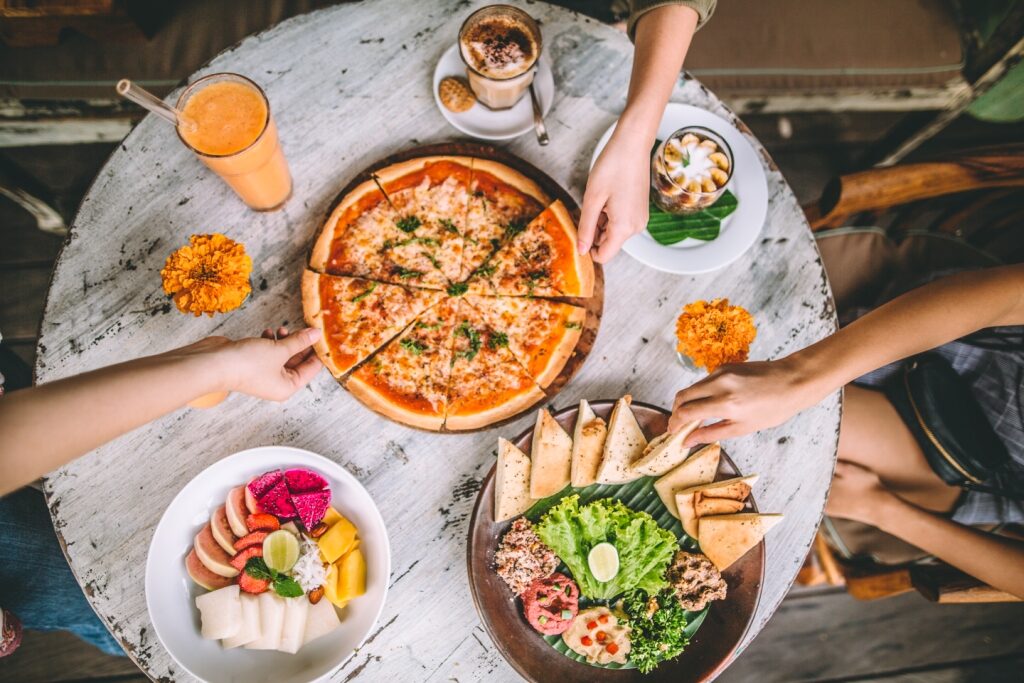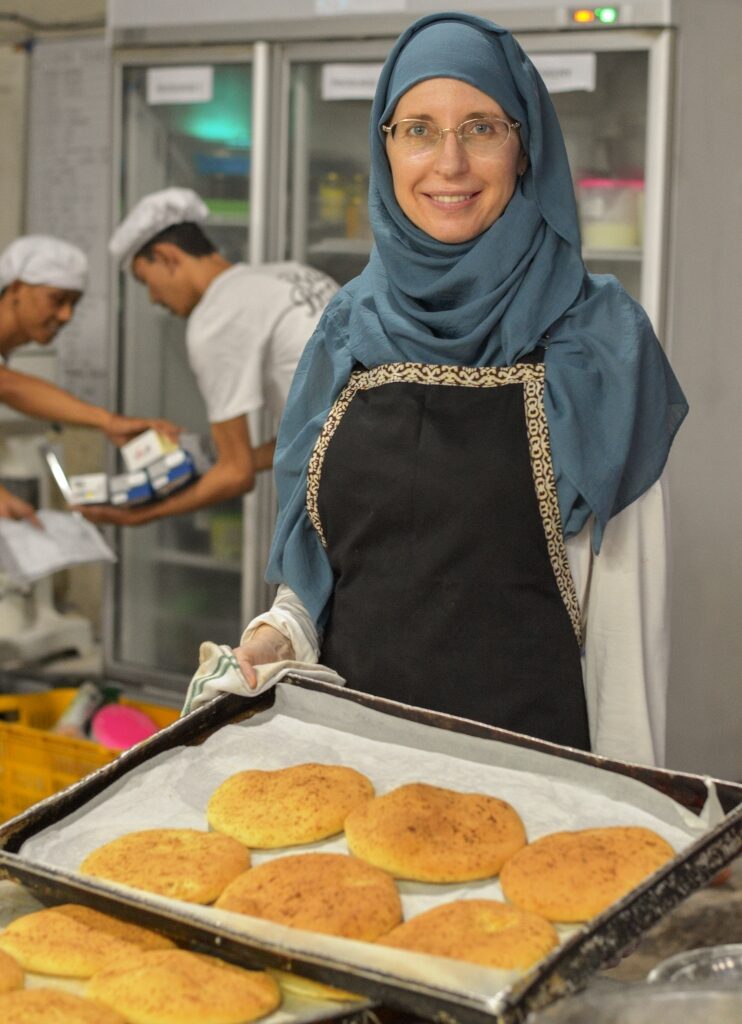
What inspired you to create Bali Buda?
We founded the first Bali Buda in Ubud 25 years ago. It was started in order to be able to create a market for organic produce from a group of farmers, now known as the Bali Organic Association. Our motto, Real Food by Real People simply means we are honest and accessible, not a business that is run for the sake of business but one that cares about what we produce, who we produce it for, and all the people inside as well.
Do you have any background in nutrition or farming? How did food business become part of your interest?
I did my Bachelor’s Degree in midwifery and have been a food hobbyist since my teenage years. I was raised on a very typical and not very nutritious American diet in the ’70s and ’80s. Yet somehow I was inspired to learn and to practice healthy eating and living. Of course healthy babies are born from healthy mothers so for me, together with the food business, it all ties in together and they are mutually supportive interests.
Wholesome food and healthy eating was not as “mainstream” as it is now when you first started Bali Buda. Was educating the customer part of the challenge at first?
For sure it was and still is a challenge! The best example is that we used coconut oil in our cooking from the beginning and I remember customers telling us how bad it was and they couldn’t believe we used it and putting pressure on us to stop it – imagine that now! Our most persistent issue is forest-harvested raw honey. The viscosity and taste is variable due to the current season and people tend to be used to mass-produced honey that is mixed in a certain way to satisfy their idea of a standard. Well, real food changes from time to time because it isn’t mass produced and artificially preserved. This is always a challenge.

Can you tell us about the products and where it comes from?
In Bali, we cooperate closely with approximately 30 farmers to grow our chemical-free produce. We also work with other local food producers throughout Bali, Java, Sumatra, Sulawesi and a small number from other islands. All together we have a range of around 2,140 products, 89% of which are local. During the past 20 years, we have been able to revert over 40,000 hectares of land back to organic farming practices and we are now very grateful that the current governor of Bali is also inspired to work towards our mission of an island-wide organic Bali.
With five Bali Buda branches in different parts of Bali, tell us about your daily operations in regards to food and bakery? Is there a production HQ to ensure food safety and freshness?
Our headquarters is located in Batubulan. We operate every single day, baking fresh products starting at 1am until 7pm, which are then delivered to our cafes and stores, early each morning. We adhere to best practices for food & safety and follow national regulations. We also take our best practices to the next level in keeping our waste to a minimum so that nothing ever reaches a landfill. Examples would be in our recycling programme, reusing what is reusable, composting, as well as keeping a tight control over inventory and production.
The rise of plant-based diet mirrors people’s concern and awareness on their health and well-being. Does eating more plant automatically make one’s lifestyle choice good for the planet?
In order to make a difference, we need to understand differences. We need to look carefully at every product and every action with this first in mind before making a decision and implementing it. A plant-based diet and calorie restriction has been scientifically proven to be of most benefit to the health of people at a certain time of their lives and logically would be more sustainable for the planet. But, I will say that any specific diet is not for everyone at every time of their lives. This is why Bali Buda caters to all food choices.
Discover more insights on wellness in epicure’s March 2020 issue here.
